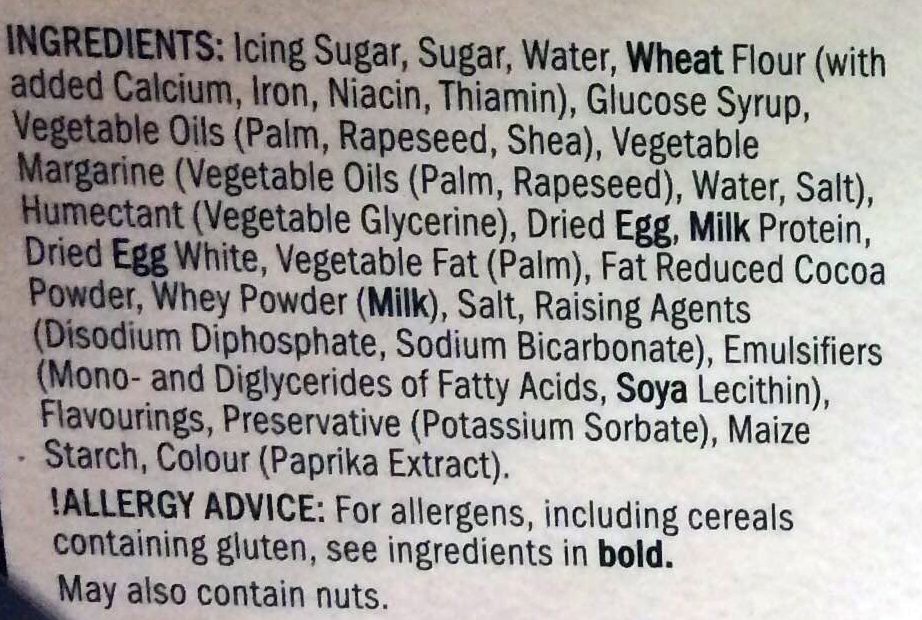8 fiendish fancies - Mr Kipling - 216g
This product page is not complete. You can help to complete it by editing it and adding more data from the photos we have, or by taking more photos using the app for Android or iPhone/iPad. Thank you!
×
Barcode: 5000221551058 (EAN / EAN-13)
Common name: sponge cakes
Quantity: 216g
Packaging: Card carton, Card tray, Compostable-box, Plastic film
Brands: Mr Kipling
Categories: Snacks, Desserts, Sweet snacks, Biscuits and cakes, Cakes
Labels, certifications, awards: Vegetarian
Manufacturing or processing places: UK
Stores: Waitrose
Countries where sold: United Kingdom
Matching with your preferences
Environment
Packaging
Transportation
Threatened species
Report a problem
Data sources
Product added on by bcatelin
Last edit of product page on by packbot.
Product page also edited by swipe-studio.
If the data is incomplete or incorrect, you can complete or correct it by editing this page.










